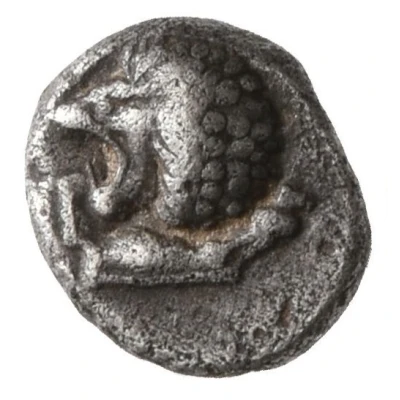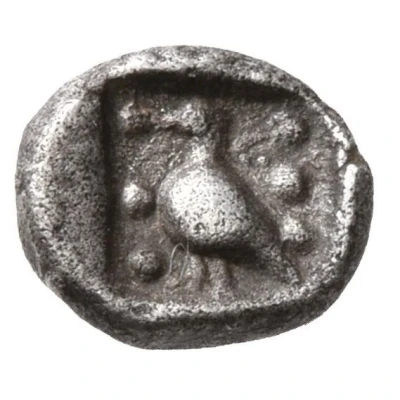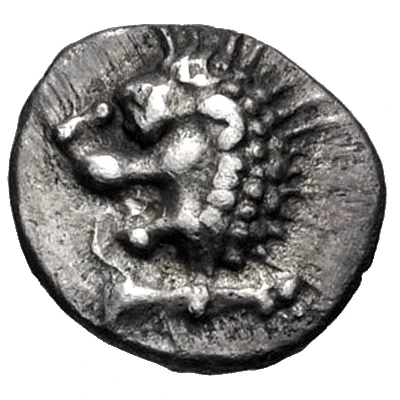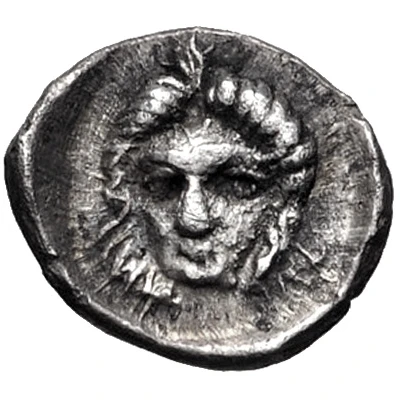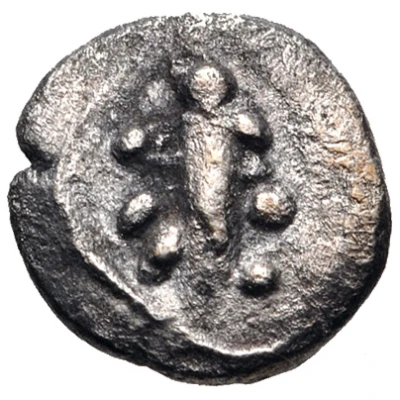
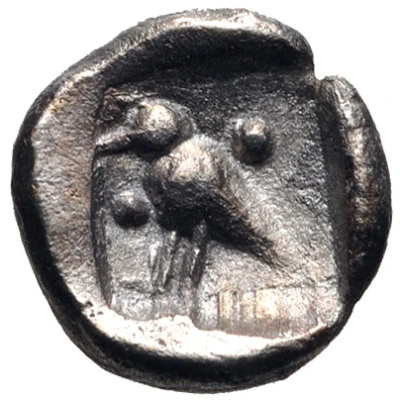

© Classical Numismatic Group, Inc.
Tetartemorion 420 BC - 390 BC
| Silver | 0.20 g | 6.0 mm |
| Issuer | Mylasa (Caria) |
|---|---|
| Type | Standard circulation coin |
| Years | 420 BC - 390 BC |
| Value | Tetartemorion (1⁄24) |
| Currency | Drachm |
| Composition | Silver |
| Weight | 0.20 g |
| Diameter | 6.0 mm |
| Shape | Round (irregular) |
| Technique | Hammered, Incuse |
| Demonetized | Yes |
| Updated | 2024-10-09 |
| Numista | N#150570 |
|---|---|
| Rarity index | 100% |
Reverse
Bird standing left, two pellets flanking and all within incuse square
Comment
Cf. SNG Keckman 924–5 (for reverse type); cf. SNG Kayhan 947–8 (for reverse type); SNG Copenhagen –.
Interesting fact
One interesting fact about the Tetartemorion coin from Mylasa (Caria) is that it features a unique blend of Greek and Persian influences in its design. The obverse side of the coin depicts a bearded male head wearing a Persian-style crown, while the reverse side shows a Greek-style owl perched on a branch. This fusion of design elements reflects the cultural exchange and blending that occurred during the Hellenistic period, when Greek cities like Mylasa were under Persian rule.
